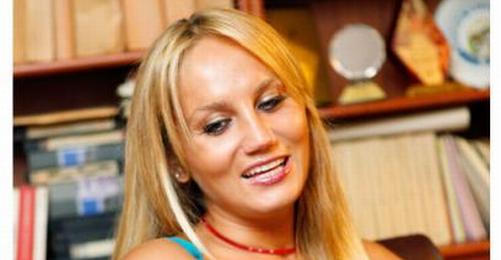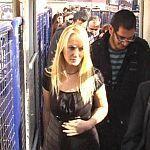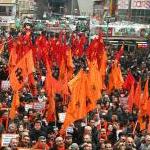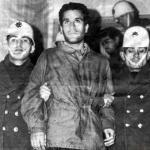The Turkish folk music artist Pınar Sağ is is tried for her saying, "Let the armed conflicts on our mountains end, peace should come and nobody should die" at the Düzgün Baba Festival in the Nazimiye district of Tunceli (eastern Anatolia) last year. The Nazimiye Public Prosecutor pressed charges of "praising crime and a criminal" against the artist.
Sağ is facing a prison sentence of up to two years according to article 215 of the Turkish Criminal Law.
Subject of the trial are the following sentences voiced by Sağ at the festival: "Let the armed conflicts on our mountains end, peace should come and nobody should die. 17 young unarmed people were killed on the Mercan Mountains. This war should finally end. Let us be able to move freely in our homeland, let peace come to this land".
Sağ: I advocated for peace
Pınar Sağ attended the hearing at the Nazimiye Criminal Court of First Instance together with her lawyer. She claimed that it should not be a crime to advocate for peace in Turkey and to ask for brotherhood.
Sağ said that she had given concerts in many countries and cities, however she was confronted with a lawsuit only in Dersim (Tunceli). "We expressed that, as human beings and with the sensitivity of an artist, we would not approve any deaths in the land we live in. 17 people were killed on the Mercan Mountains and there was no document or any other proof for their being guilty of anything. This is the defence I made. I advocated for peace in the concert", Sağ explained.
Sağ is tried under the same charges for a speech delivered at a concert in the course of a meeting for Murat Kur, then independent mayor candidate in the run-up to the local elections on 29 March 2009.
"Where is the proof for Kaypakkaya's guilt?"
Musician Sağ also stands trial at the Tunceli Magistrate Criminal Court under allegations of having praised Ibrahim Kaypakkaya, founder of the Communist Party of Turkey/Marxist Leninist (TKP/ML)-TİKKO organization. She gave a statement at the Şişli (Istanbul) courthouse upon a directive in the beginning of May 2010. Kaypakkaya had been injured in an armed conflict with the security forces in 1973. He was arrested and taken to the Diyarbakır Prison where he died of torture.
Sağ had indicated that there was no evidence for Kaypakkaya's guilt. "I thought that if the suspects of the murder of [leftist revolutionary] Deniz Gezmiş apologized today, then starting from this idea Kaypakkaya would not be guilty, because there was no prosecution resulting in a conviction and the legal situation does not require an acceptance of guilt. Saying that the guilt of Kaypakkaya cannot be accepted does not mean that I am praising a criminal", Sağ had argued. (EÖ/VK)















